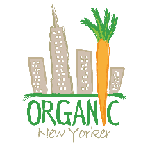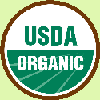

The IFOAM (International Federation of Organic Agriculture Movements) recently defined
organic agriculture as:
...a production system that sustains the health of soils, ecosystems and people. It relies on
ecological processes, biodiversity and cycles adapted to local conditions, rather than the use
of inputs with adverse effects. Organic agriculture combines tradition, innovation, and science
to benefit the shared environment and promote fair relationships and a good quality of life for
all involved.
Basically it means:
Instead,
organic agriculture as:
...a production system that sustains the health of soils, ecosystems and people. It relies on
ecological processes, biodiversity and cycles adapted to local conditions, rather than the use
of inputs with adverse effects. Organic agriculture combines tradition, innovation, and science
to benefit the shared environment and promote fair relationships and a good quality of life for
all involved.
Basically it means:
- NO chemical (and toxic) fertilizers, pesticides, and herbicides
- NO antibiotics, growth hormones, and medication to prevent disease and spur growth
are given to animals
Instead,
- YES natural fertilizers (like manure) are used to enrich the soil
- YES crop rotation is practiced which protects the land
- YES animals get organic feed and access to the outdoors
|

In the US, guidelines were put into place in October 2002, by the USDA's (United States
Department of Agriculture) National Organic Program (NOP). Look for the sticker, which
means that it contains at least 95-99% organic ingredients.
Keep in mind that the organic label is voluntary and oftentimes smaller farms choose not to go
through the rigorous process of getting certified. It's ok to ask your local farmer how s/he
farms.
Department of Agriculture) National Organic Program (NOP). Look for the sticker, which
means that it contains at least 95-99% organic ingredients.
Keep in mind that the organic label is voluntary and oftentimes smaller farms choose not to go
through the rigorous process of getting certified. It's ok to ask your local farmer how s/he
farms.
It better for:
soil erosion & improves soil quality. Overall, it also consumes less energy, since natural to
market.
fertilizers require less processing and organic food generally travels less miles from farm
So really, why NOT?
soil erosion & improves soil quality. Overall, it also consumes less energy, since natural to
market.
fertilizers require less processing and organic food generally travels less miles from farm
- The Animals - The animals are fed organic feed and allowed access to the outdoors to
graze. Organic dairy products must be free from recombinant Bovine Growth Hormone
(rBGH or rBST), antibiotics, and other medications that are routinely given to
conventional dairy animals.
- You and Your Family - Who knows what the real implications these chemicals have in
our bodies? We do know that the liver must work harder processing these chemicals,
medications, etc, found in conventional food, along with its normal job of processing the
nutrients from the food we consume as well as out own hormones. And often the liver
gets "overloading", manifesting into other problems such as birth defects, miscarriages,
sterility, and hormonal issues. In addition, many of these chemical additives are known
carcinogens. By the way, children are more vulnerable than adults, and these
chemicals are passed to the fetus in utero, as well as it being most concentrated in
breast milk. With that being said, organic food taste better and is packed with more
nutrients.
So really, why NOT?

© 2009 Organic New Yorker™

